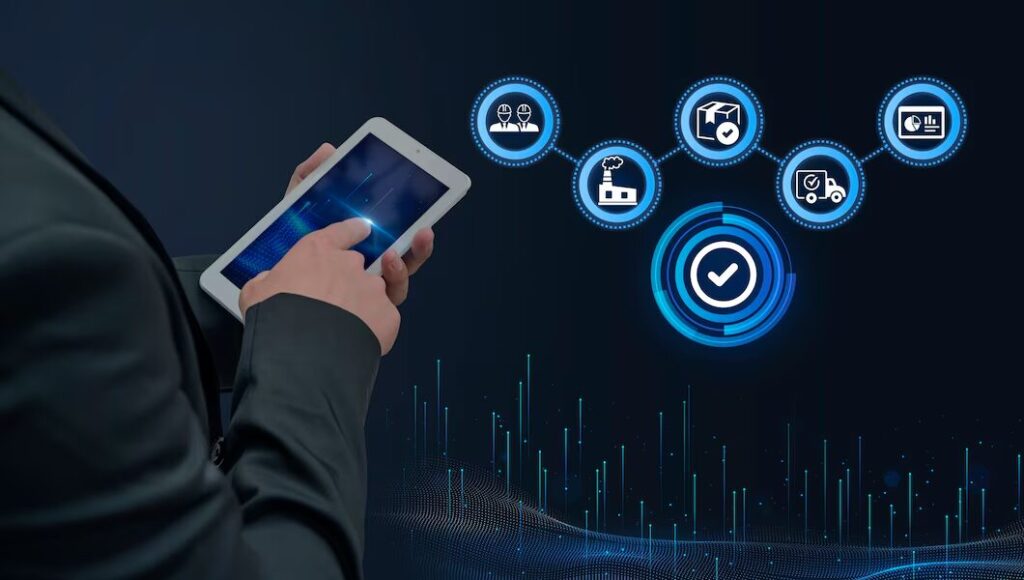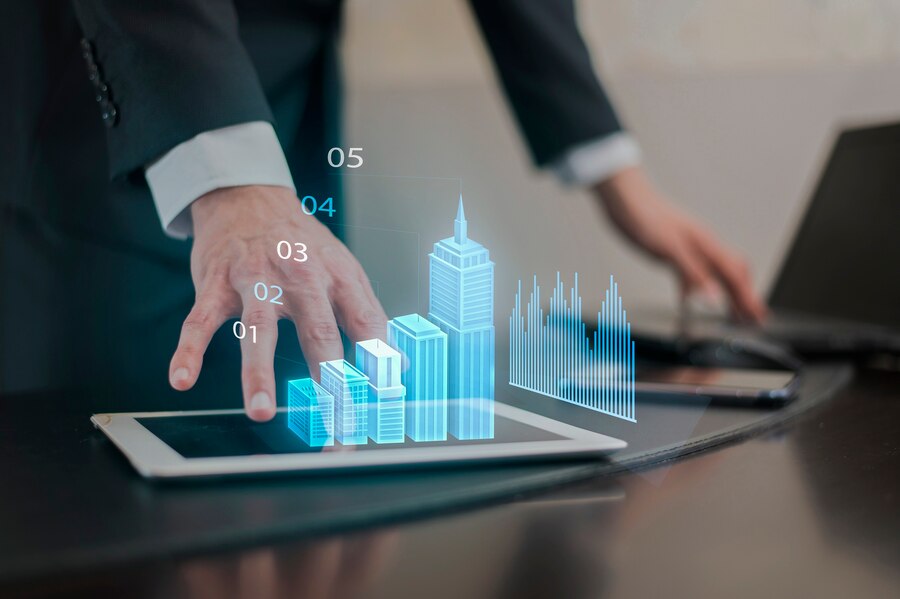The Future Of Work: How Smart Offices Are Transforming The Workplace
by Ankita Tripathy Business Development Published on: 03 February 2024 Last Updated on: 21 October 2024

In today’s rapidly changing world, the workplace is undergoing a significant transformation. Traditional offices are evolving into smart offices, thanks to advancements in technology and innovative approaches to work.
Gone are the days of strict 9-to-5 schedules and cubicles. The future of work is all about flexibility, productivity, and efficiency. Smart offices play a crucial role in shaping this new work landscape. This article explores the future of work and how smart offices are revolutionizing the way we work and collaborate.
What Are Smart Offices?

Smart offices are technologically advanced workspaces designed to enhance productivity and improve the overall work experience. Smart spaces are equipped with various smart devices and systems that can automate tasks, monitor the environment, and facilitate seamless communication.
Smart Office Features
IoT Integration: Smart offices leverage the Internet of Things (IoT) to connect devices and gather data for better decision-making.
Energy Efficiency: These offices optimize energy consumption through smart lighting, heating, and cooling systems.
Collaboration Tools: Smart offices offer state-of-the-art collaboration tools like video conferencing and interactive whiteboards.
Employee Wellness: They prioritize employee well-being with features such as adjustable desks and ergonomic furniture.
The Benefits Of Smart Offices

Increased Productivity
Smart offices help employees work more efficiently by automating repetitive tasks and providing quick access to information. This increased productivity can lead to higher job satisfaction and reduced stress.
Enhanced Collaboration
Collaboration is essential in today’s work environment. Smart offices make it easy for teams to collaborate, whether they are in the same room or working remotely. Videoconferencing and virtual collaboration tools bridge the gap between physical and digital workspaces.
Cost Savings
Smart offices can reduce operational costs by optimizing energy usage and space utilization. Companies can also save on commuting expenses for remote workers, contributing to a more sustainable future.
Integrating Remote Work With Smart Offices Technologies
One of the most significant transformations in the workplace is the rise of remote work. Smart offices are not just physical spaces; they also encompass digital platforms that integrate seamlessly with remote working environments. This integration ensures that employees working from home are just as connected and efficient as those in the office. Tools like cloud computing and virtual private networks (VPNs) enable secure, real-time collaboration and access to company resources from anywhere in the world.
Customization and Personalization Through Smart Technologies

Smart offices are not one-size-fits-all solutions. They are increasingly customizable, allowing for a personal work environment that can adapt to individual preferences and needs. For instance, smart lighting systems can adjust based on the time of day or personal preference, while AI-driven software can learn an employee’s schedule and adjust the workspace accordingly. This level of personalization not only boosts comfort but also enhances productivity.
Sustainability And Eco-Friendly Practices for Smart Office
Sustainability is a growing concern, and smart offices are at the forefront of eco-friendly practices. By using energy-efficient devices and optimizing resource use, smart offices significantly reduce the carbon footprint of businesses. Moreover, technologies like smart sensors can monitor and adjust energy use in real time, further contributing to environmental sustainability.
The Human Element In Smart Offices
While technology is a crucial component of smart offices, the human element remains central. The design of smart offices takes into consideration not just efficiency, but also how people interact with their environment and each other. Ergonomic designs, natural lighting, and spaces for relaxation and social interaction are essential in creating a balanced and healthy work environment
The Impact Of Smart Offices On Real Estate

The evolution of smart offices is also influencing the real estate sector. Companies are rethinking their space requirements, leading to a transformation in commercial real estate. Flexible workspaces, co-working spaces equipped with smart technologies, and the repurposing of traditional office spaces are trends shaping the future of office real estate.
Challenges And Concerns
While smart offices offer numerous benefits, there are challenges to consider. These may include concerns about data privacy, security, and the potential for over-reliance on technology. Striking the right balance is crucial.
The Role Of Artificial Intelligence (AI)

Artificial intelligence is at the heart of smart office solutions. AI-powered virtual assistants, data analytics, and predictive maintenance are transforming the workplace by providing insights and streamlining operations.
The Future Outlook
The future of work is undoubtedly intertwined with smart offices. As technology continues to advance, we can expect even more sophisticated and intuitive office environments that cater to the needs of both employees and employers.
Preparing For The Future: Training And Adaptation
As smart offices become more prevalent, training and adaptation become crucial. Employees need to be equipped with the skills to utilize new technologies effectively. Continuous learning and adaptation are essential in ensuring that both employees and businesses can make the most of these advanced systems.
Final Thoughts
In conclusion, smart offices are revolutionizing the workplace by enhancing productivity, fostering collaboration, and reducing costs. As we embrace the future of work, businesses need to adapt to these changes and leverage the benefits of smart office technology.
FAQs
Are smart offices only suitable for large corporations?
No, smart offices can be customized to fit the needs of businesses of all sizes. Small and medium-sized enterprises can benefit from smart office solutions as well.
How can I ensure data security in a smart office environment?
Data security is a priority in smart offices. Employ robust cybersecurity measures, regular updates, and employee training to mitigate risks.
Do smart offices require a significant upfront investment?
The initial investment in smart office technology can vary. However, the long-term benefits, including cost savings and productivity gains, often outweigh the initial costs.
Can smart offices adapt to different work cultures?
Yes, smart offices can be tailored to accommodate various work cultures and practices.
Where can I learn more about implementing smart office solutions?
For more information on implementing smart office solutions, you can visit the Spaces Cisco website
Read Also:



































































































